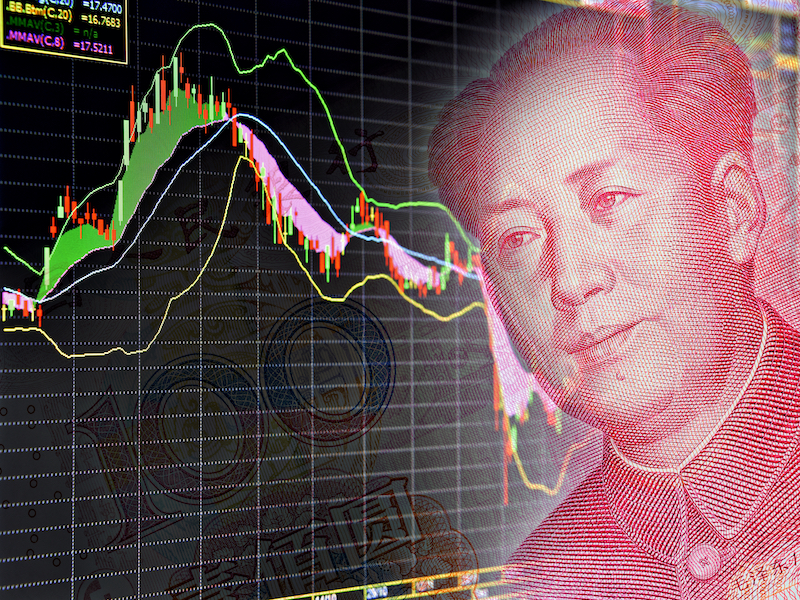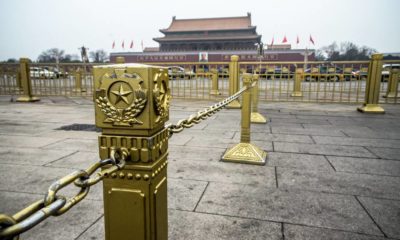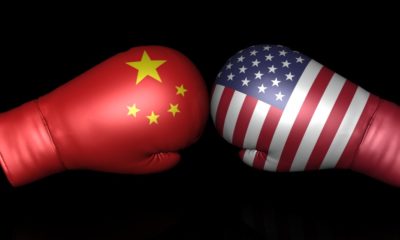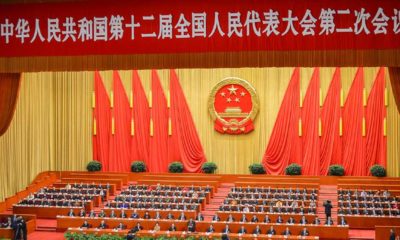Commodities
Surge in China’s Commodities Market

A recent increase in investors’ participation in Chinese commodities markets is only a piece of a larger pattern. China is shifting its economic focus away from stocks, stock-index futures, and bonds for emphasizing products.
The growing influence of the Dalian Commodity Exchange is a perfect example.
How Did an Unknown Market in Northeast China Gain So Much Influence?
The Dalian Commodity Exchange owes much of its recent popularity to iron ore and steel.
China is the world’s major consumer of metals—including copper and aluminum—and buys a huge portion of internationally traded physical iron ore. Increasingly, the power to price commodities like iron ore has shifted from the West to the East.
The age when the world’s most prominent and prestigious miners and steelmakers would meet secretly to determine the price of iron ore has ended. Now, the Dalian Commodity Exchange has created a frenzy of investment activity in iron ore futures.
What Is Happening in the Iron Ore Market?
As iron ore prices have increased, iron ore futures have also surged. The increase is mostly because investors have started pouring billions of dollars into iron ore futures. The Dalian Commodity Exchange traded approximately $330 billion of iron ore futures in April alone.
Iron ore has not traditionally been a market with many opportunities. Until recently, a few influential producers like BHP Billiton controlled the entire market. That was when several prominent producers secretly met to arrange prices and sold directly to steel mills.
Now, companies have created an iron ore futures market that is much more inclusive. Furthermore, traders in the physical market can monitor iron ore futures easily and frequently, thanks to greater visibility and real-time prices.
Investors have hurried to get involved in the iron ore activity and have begun to make massive deals. And as iron ore prices have risen, steel prices have started going up, too.
A Steep Rise in Trade Volumes
The increased volume of steel trade has a direct effect on the rising prices of Steel. Steel rebar is in high demand for construction because it is effective at strengthening concrete.
[seabridge]
For instance, on Thursday, more than 223 million metric tons of steel rebar were exchanged in trade. The frequency in trade of steel rebar futures is behind only the oil futures of New York and London (by dollar volume).
In the meantime, steel mill margins are promising, while other metals, including copper, have also been gaining investors. Other commodities markets have seen similar levels of growth, including:
- hot-rolled coils
- cotton
- Polyvinyl chloride.
- Agricultural products markets (e.g., corn and egg markets)
With so many commodities futures markets on the rise, Morgan Stanley is among those who predict that growth will continue.
Parallels to a 2015 Stock Market Crash Cause Concern
However, the impressive growth in commodities futures markets is not without risk. Hedge funds and retail investors are among the many groups betting on China’s commodities futures.
This flurry of activity has many analysts worrying about a repeat of last year’s major stock market crash. Some analysts had noted that the boom in 2015 seemed just as promising—before it eventually ended in a devastating stock market crash with estimated losses of about $5 trillion.
Given last year’s crash, it is no surprise that some analysts are getting a bit worried. Citigroup analysts have expressed particular concern about stability and sustainability of the commodities futures markets.
Members of Citigroup point to the Chinese markets’ relatively low regulation and relatively minor protection for investors as two factors that may indicate danger.
Exchanges Taking Measures to Curb Speculative Trading
In light of the explosive speculation that is currently sweeping commodities futures markets, the Chinese securities regulator has called the exchanges to rein the speculative trading.
The Dalian Commodity Exchange has responded with several concrete steps to curb speculative trading:
- raising transaction costs
- increasing deposit requirements for investors
- tightening restrictions on business practices (like frequency of submission and frequency of order withdrawals)
- increasing iron ore margin requirements
Similarly, the Shanghai Futures Exchange and Zhengzhou Commodity Exchange have also increased transaction fees, implemented heightened monitoring, and issued warnings to investors.
All of these measures to curb speculative trading are intended to help regulate the market by enforcing restrictions on illegal business practices, reducing risks, and stabilizing the market.
Can Preventative Measures Ensure Stability?
According to the leader of Australia’s influential Fortescue Metal Group, Nev Power, the trade volumes of commodities futures have become a massive driving force in the market. However, Power also warns that future trends are highly unpredictable.
Demand for products like steel rebar seems unlikely to decrease anytime soon, for example, but if rebar supply declines quickly, problems will soon arise.
For now, China’s efforts to regulate speculative trading have not had much success dissuading investors, who are eager to participate in the market growth and attracted by leverage to bet on commodities.
Going forward, however, many analysts urge investors to be aware of lingering dangers. The preventative measures can only be effective if investors heed regulators’ warnings. After all, commodities futures markets have the potential to crash just as suddenly and dramatically as they have surged.















